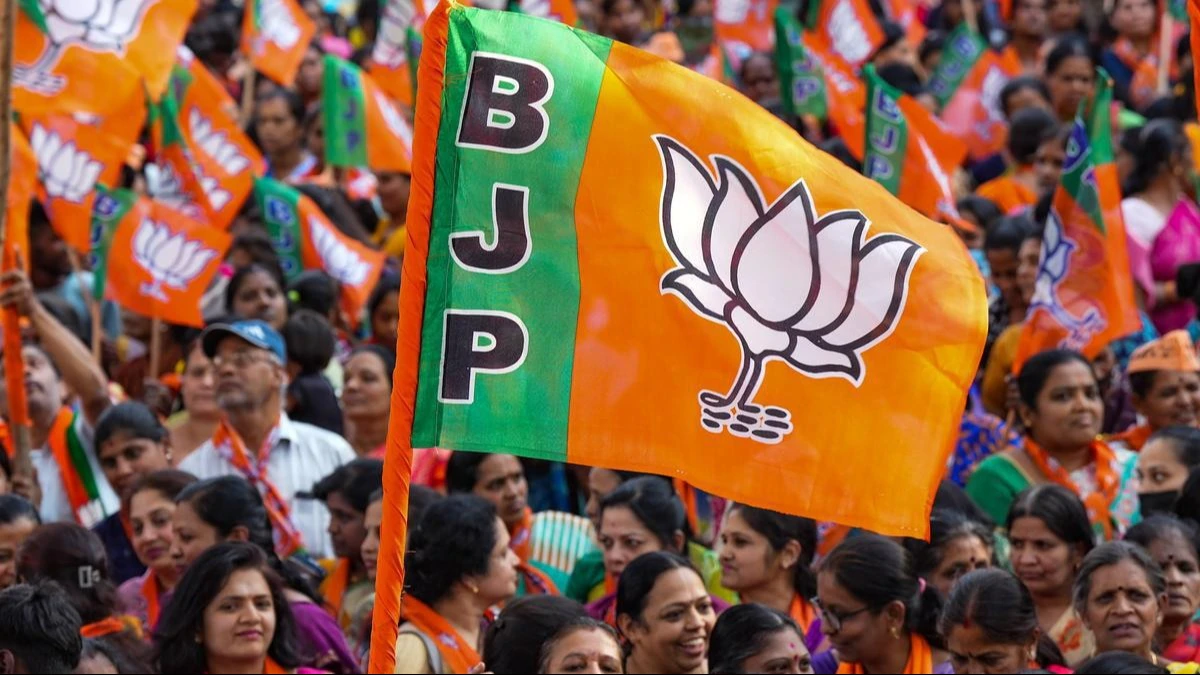The BJP’s struggle in Jharkhand highlights
New Delhi: The BJP has faced its second consecutive Assembly election defeat in Jharkhand, with this year’s outcome proving even worse than in 2019. The party managed to secure only 21 seats, compared to the 25 seats it won in the 2019 elections out of the 81 Assembly constituencies in the state. The results present a mix of challenges and opportunities, signalling the need for the party’s high command to step in and undertake a comprehensive overhaul of the state unit. Additionally, the BJP must focus on identifying and grooming new tribal leaders, as the existing leadership has lost its footing in Jharkhand.
The party’s poor performance in the elections is due to a combination of campaign mismanagement and internal rifts within the state unit. These factors significantly undermined the BJP’s ability to present a united and cohesive front to the electorate. A senior Jharkhand BJP leader, speaking to The Sunday Guardian, on the condition of anonymity, emphasised the urgent need for the party to identify and groom new, popular tribal leaders to regain momentum in the state. The leader acknowledged that the party has lost its footing among tribal voters due to the ineffectiveness of its older leadership. He noted that the once-reliable tribal leaders have lost their connection with the grassroots, resulting in dwindling trust from tribal voters. This disconnect has been a key factor in the BJP’s struggles, as evidenced by its poor performance in tribal-reserved constituencies during the recent elections.
Jharkhand is unique state among Indian states when it comes to tribal voters. Unlike other states, Jharkhand is home to the Jharkhand Mukti Morcha (JMM), a party that is distinctly tribal in its identity. In contrast, the BJP, as a national party, cannot position itself solely as a tribal party, though it tries to project a pro-tribal image. This strategy has worked for the BJP in states like Chhattisgarh, where it successfully conveyed a message to its cadre that a tribal leader would be made Chief Minister if the party came to power, as demonstrated by the nomination of Vishnu Deo Sai. This approach resonated with voters in Chhattisgarh.
However, in Jharkhand, the BJP lacks a strong tribal face, as its veteran leaders have lost their grassroots support. The situation in Jharkhand differs significantly from states like Madhya Pradesh where tribal voters, though present, do not form as large a proportion of the electorate as they do in Jharkhand.
In Jharkhand, the BJP faces a more challenging task, as its success heavily depends on competing with the JMM, which has a dominant tribal identity and leadership. The JMM’s strong appeal among tribal voters makes it difficult for the BJP to gain a foothold without a credible tribal leadership of its own.
The leader pointed out that even in the Lok Sabha elections, the BJP failed to make significant impact in tribal areas. A stark example of this was the defeat of prominent tribal leader and former Chief Minister Arjun Munda, highlighting the party’s declining influence in these regions. This trend continued in the Assembly elections, where many of the BJP’s key tribal candidates faced losses.
For instance, Sita Soren, daughter-in-law of JMM patriarch Shibu Soren, contested from the Jamtara seat but was defeated by Congress candidate Irfan Ansari. Similarly, Geeta Koda, wife of former Chief Minister Madhu Koda, lost the Jaganathpur seat to Congress candidate Sonaram Sinku. Meera Munda, wife of former Union Minister Arjun Munda, was defeated in Potka by JMM’s Sanjib Sardar. Additionally, Babulal Soren lost the Ghatshila seat to JMM candidate Ramdas Soren. Among the BJP’s high-profile candidates, only Purnima Das Sahu emerged victorious, securing the Jamshedpur East seat by defeating Congress candidate Ajoy Kumar.
The leader also directed criticism toward state BJP President Babulal Marandi, suggesting that Marandi’s decision to contest from the Dhanwar constituency, which is not a tribal-reserved seat, sent a detrimental message to the party’s core tribal voter base. This move, he argued, created a perception among tribal voters that Marandi lacked confidence in contesting from a tribal constituency, thereby alienating a crucial segment of the electorate.
The leader further highlighted the weak state party organisation as another critical factor contributing to the defeat. He emphasised that despite repeated warnings, the organisational shortcomings were not effectively addressed, leaving the party ill-prepared to face the challenges of a fiercely competitive electoral environment. This combination of strategic errors and organisational weaknesses ultimately cost the BJP dearly in the elections.
Several political analysts believe that the BJP’s failure to regain power in Jharkhand can be largely attributed to the legacy of misgovernance under former Chief Minister Raghubar Das. His tenure, marked by controversies and unpopular decisions, left a lasting negative impact on the state’s tribal population, who form a significant portion of the electorate.
Das’s government was criticised for its policies on land acquisition, alleged neglect of tribal rights, and failure to address pressing issues such as unemployment and poor implementation of welfare schemes. These actions led to widespread discontent among tribal communities, who felt marginalised and neglected under his leadership.
Even years after Das’s tenure, many tribal voters remain wary of the BJP, fearing that a return to power would bring back the same policies and governance style that led to their struggles.
This deeply rooted mistrust has become a major obstacle for the party, as it struggles to rebuild its image and reconnect with this crucial voter base. Consequently, this sentiment has significantly influenced voting patterns, contributing to the party’s consecutive electoral defeats in the state.

